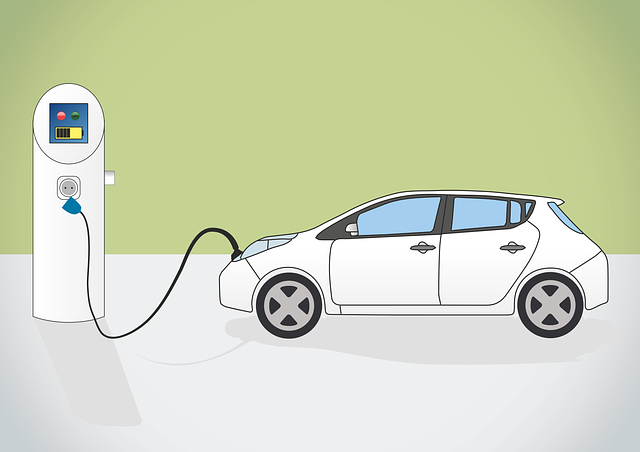Register Car California: Use VIN Verifier for Authenticity
Looking to register your car in California? Navigating the process can be straightforward with the right preparation. In this guide, we’ll walk you through understanding key requirements, gathering es…….

Looking to register your car in California? Navigating the process can be straightforward with the right preparation. In this guide, we’ll walk you through understanding key requirements, gathering essential documents, and ensuring your vehicle’s authenticity using a VIN verifier. From tax assessments to completing the registration application, we’ve got you covered. Follow these steps for a smooth and efficient California car registration experience.
- Understanding California Car Registration Requirements
- Gather Necessary Documents for Vehicle Registration
- Determine Your Vehicle's Tax and Fee Assessment
- Use VIN Verifier to Ensure Vehicle Authenticity
- Submit Application and Complete Registration Process
Understanding California Car Registration Requirements

Before registering your car in California, it’s crucial to understand the state’s specific requirements. One key aspect is ensuring your vehicle has a valid and accurate Vehicle Identification Number (VIN) inspection. This process verifies the authenticity of the VIN, which is a unique code that identifies your car’s make, model, and year. In California, this verification is typically done through a mobile VIN inspection or by using an authorized online service, making it accessible for out-of-state residents as well.
The state requires you to present a valid, signed title and current vehicle registration from the state where the car was previously registered. Additionally, proof of insurance and a completed California Vehicle Registration Application (DMV Form Reg-102) are essential documents. A mobile VIN inspection service can help streamline this process by providing on-demand verification, ensuring your car meets all legal standards before final registration in California.
Gather Necessary Documents for Vehicle Registration

Before you start the registration process, it’s crucial to gather all the essential documents required by the California Department of Motor Vehicles (DMV). One critical step is to verify your Vehicle Identification Number (VIN) using a reliable method like a mobile VIN inspection or a vin inspection. This can be done through an online check or by contacting the manufacturer. Having your VIN ready allows for a smoother registration experience.
Additionally, you’ll need proof of ownership, typically in the form of a vehicle title, as well as valid identification documents such as a driver’s license or state-issued ID card. Insure that all information on these documents matches precisely to avoid delays. Other necessary papers include your current auto insurance policy and any relevant registration fees. Having these documents prepared beforehand can save you time and effort during the car registration process in California.
Determine Your Vehicle's Tax and Fee Assessment

Before registering your car in California, it’s crucial to understand the tax and fee assessment for your vehicle. This process involves a thorough inspection that includes verifying your Vehicle Identification Number (VIN). A mobile VIN verifier or a specialized vin inspection service can help streamline this step by providing an accurate assessment of your car’s taxes and fees. These services utilize advanced technology to quickly gather necessary data, ensuring compliance with California’s registration requirements.
By employing a mobile VIN verifier, you can conveniently determine the tax amount and associated fees for your vehicle without visiting a DMV office. This not only saves time but also ensures that your car’s registration process is as smooth as possible. Remember, understanding these costs in advance is essential to avoid any surprises when submitting your registration application.
Use VIN Verifier to Ensure Vehicle Authenticity

Before registering your car in California, it’s crucial to verify its authenticity using a reliable method like a VIN (Vehicle Identification Number) verifier. This step ensures that the vehicle is as described and free from any tampering or fraud. Many online platforms offer mobile VIN verification services, allowing you to check a vehicle’s history with just a few clicks from your smartphone.
A reputable VIN verifier will cross-check the information against multiple databases, providing you with a comprehensive report detailing the vehicle’s past, including any accidents, outstanding loans, or recall issues. This process is straightforward and often faster than traditional inspection methods. Additionally, some mobile vin verification services can even perform on-site inspections for added convenience, ensuring a seamless experience during your car registration in California.
Submit Application and Complete Registration Process

After you’ve gathered all the necessary documents, it’s time to submit your application for vehicle registration. This crucial step involves completing an official form, available from the California Department of Motor Vehicles (DMV), where you’ll provide detailed information about your car, including its make, model, year, and unique Vehicle Identification Number (VIN). Ensure accuracy during this process as any mistakes might lead to delays.
A key component of the registration process is a VIN inspection or verification. You can either conduct this manually by checking the vehicle’s frame, engine, and other parts for matching the provided VIN, or opt for a mobile VIN verification service that sends an expert to your location for a more convenient and precise check. This step ensures the car’s history and authenticity, which is vital for road safety and legal compliance in California.
Registering a car in California involves understanding key requirements, gathering essential documents, assessing taxes and fees, and verifying vehicle authenticity using a VIN verifier. Once these steps are completed, you’ll be on your way to securing a valid registration, ensuring compliance with state regulations, and hitting the road with peace of mind.







